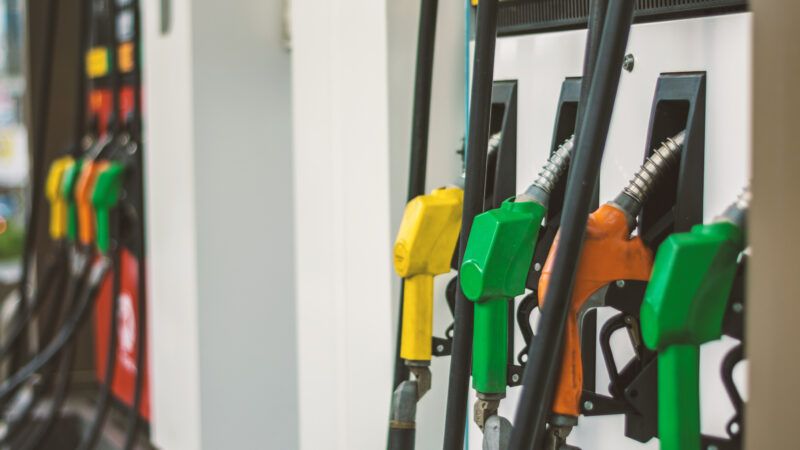Illinois Will Fine Gas Stations That Don't Advertise Delayed Gas Tax Hike
Fuel retailers could face fines of $500 for failing to place signs on their pumps informing customers of the delayed implementation of the 2.2-cent increase in the state's gas tax.

Illinois' new state budget provides some tax relief for consumers and penalizes businesses that don't advertise that fact.
The $45 billion budget for FY 2023 passed by the Illinois Legislature Saturday eliminates the state's 1 percent grocery tax for one year starting in July 2022. It also delays an inflation-adjusted increase in the state's gas tax of 2.2 cents per gallon until January 2023.
The idea, according to Democratic proponents of the budget, is to assist state residents during a time of rising food and fuel costs.
"This budget is for all those who are worried about the rising cost of groceries, which seem ever more expensive each time you go to the store," said Gov. J.B. Pritzker, a Democrat. "It's for those who can only put $10 at a time into your gas tank, because filling up the whole tank stretches you too thin."
The pause on taxes and tax increases comes with a catch, however. Both grocery stores and gas stations are required to notify consumers of the changed tax policy. The latter will face fines of $500 for not complying.
Fuel retailers will have to place notices on each pump informing customers of the delay of the state's inflation adjustment and that "the price on this pump should reflect the suspension of the tax increase."
"To be forced under threat of fines to post this information, it's absurd," says Greg Sharp of the Illinois Fuel and Retail Association (IFRA). "It's government compelling speech, and it's unconstitutional."
The vaguely written policy also leaves some lingering practical questions, including whether fines would be applied per retailer or per pump and whether retailers will be liable for signs removed or damaged by customers, says Sharp.
The signage requirement goes into effect on July 1. Sharp tells Reason that the IFRA will likely file a lawsuit challenging the policy in the next couple of weeks.
Grocery stores will likewise have to alter their receipts to include an announcement that the state's grocery sales tax will be 0 percent for the next year. If it's not practical to include that information on receipts, stores can display the information on a sign that's at least 4 inches by 8 inches.
"Putting it on the receipts is very, very difficult," says Rob Karr of the Illinois Retail Merchants Association (IRMA). "Those who can will post a sign for consumers to know."
Grocery stores, unlike gas stations, won't be penalized for failing to display signs. Karr says the IRMA isn't considering a lawsuit to challenge the new requirement.
Sharp chalks up the disparate treatment between grocery stores and gas stations to the fact that gas prices are proving politically problematic for the governor, who is running for reelection this year.
"I think our governor is so worried about having to wear the jacket for high gas prices. And he should be worried," he says. "I think that's the reason this industry got the mandate from Springfield to do this."
State governments around the country have passed or proposed a number of populist gambits to mollify voters' anger at high gas prices. Those range from gas tax holidays to cash rebates.
These all have their drawbacks. Cash rebates are poorly targeted and, in some cases, will outweigh whatever state taxes the recipient paid. Gas tax holidays allow motorists to skip out on paying for the roads they use.
Illinois' requirement that gas stations actively advertise the state's tax policies under threat of fines is in a league of its own. Retailers are effectively being forced to promote the political messaging of the governor and state legislators during an election year.
Gas station owners obviously resent being used like this, hence their plans to sue.
Rent Free is a weekly newsletter from Christian Britschgi on urbanism and the fight for less regulation, more housing, more property rights, and more freedom in America's cities.

Show Comments (33)